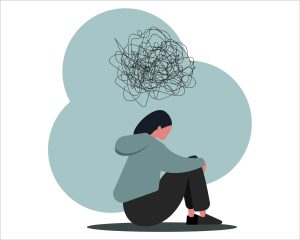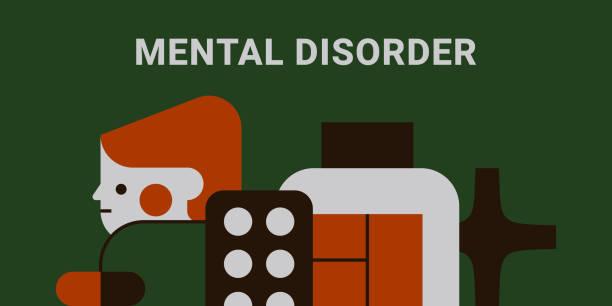Suicidal
Ideation
Suicidal ideation, often referred to as “suicidal thoughts,” encompasses a wide range of contemplations, wishes, and preoccupations with death and suicide. It is a symptom associated with mental health conditions such as depression, anxiety, and bipolar disorder, but it can also occur in individuals without any mental illness. If you or someone you know is experiencing suicidal ideation with a mild to moderate risk level, it is important to seek help from an outpatient mental health facility, such as Quest Wellness Center.
WE’RE ACCEPTING NEW PATIENTS: IN-PERSON & VIRTUAL APPTS
Request a Call Back
We are here to help
In cases of active suicidal thoughts or plans, please contact the National Suicide Prevention Lifeline at 1-800-273-8255. If you or someone else is in immediate danger, call 911. At Quest Wellness Center, when a patient arrives with suicidality issues, they are placed in our safe treatment environment, where they are closely monitored and evaluated for their level of suicidality. We address suicidal ideations through a personalized approach tailored to each patient. We offer Intensive Outpatient (IOP) and Partial Hospitalization Programs (PHP), along with various psychotherapeutic modalities to effectively treat suicidal ideations.
Suicidal Ideation Assessment
During the assessment process at Quest Wellness Center, patients are asked to complete a safety contract, which involves a thorough evaluation of their suicidal thoughts. Patients rate the intensity of their urges, indicate whether they have a plan, assess whether they have the means to carry out that plan, and disclose their intentions regarding potential attempts. Additionally, questions regarding any previous suicidal thoughts or attempts are posed.
After the assessment, patients sign a written safety contract that outlines a verbal agreement to remain safe. This contract explains our policies regarding suicidality and the actions that will be taken if a client makes a suicide attempt, such as transferring to a higher level of inpatient care.
Individual Therapy
Individual therapy sessions are available to help explore the underlying reasons that may have contributed to the development of suicidal thoughts. At our clinic, you and your therapist can work together to understand the causes of your emotional pain, learn healthier ways to manage stress, identify triggers for relapse, and develop strategies to cope with suicidal urges.
Group Therapy
Various group sessions are held every day in the morning, afternoon, and evening, covering a wide range of topics. Through these sessions, patients connect with others and learn better communication skills. Group therapy at Quest Wellness Center is facilitated by licensed mental health professionals and addiction counselors. **Family Therapy** Family therapy helps loved ones understand what you or your loved one is going through, allowing family members to actively participate in the healing process.
Medication Management
Our team evaluates patients to determine the need for medication. Depending on individual circumstances, the treatment plan may include medications to alleviate symptoms. Drugs such as antidepressants, anti-anxiety medications, and mood stabilizers can help reduce symptoms and lessen suicidal urges. All medication usage at Quest is closely monitored and adjusted as necessary.
Psychotherapeutic Modalities
At Quest Wellness Center, patients are introduced to a variety of psychotherapeutic modalities, equipping them with tools to manage strong emotions and mood changes. We have specific groups focused on suicidality, including Seeking Safety and Process Groups. Cognitive Behavioral Therapy (CBT) may be employed to diminish feelings of hopelessness and reduce suicide attempts. Dialectical Behavior Therapy is also utilized to manage overwhelming emotions that may lead to suicidal thoughts.
Understanding Suicide
Suicide, the act of taking one’s own life, is a tragic response to overwhelming life situations. The saddest part is that it is often preventable with proper treatment. If you are considering suicide or know someone who is feeling suicidal, please seek help—doing so could save a life, whether it’s yours or someone else’s.
Suicide is the 10th leading cause of death in the United States and the 2nd leading cause of death among individuals aged 10 to 34. The severity of this issue is reflected in the fact that every 11 minutes, someone loses their life to suicide.
By understanding the issues surrounding suicide and mental health, we can meaningfully contribute to suicide prevention efforts, assist those in crisis, and transform the conversation about suicide.
Tragically, many cases of suicide go unreported due to stigma, religious beliefs, and other concerns. Therefore, the true extent of the issue may be even graver than statistics suggest. Certain populations are at disproportionately high risk for suicide, including
- Males, who have a suicide rate 3.9 times higher than females.
- American Indian/Alaska Native individuals, who possess the highest suicide rates in the nation, followed by non-Hispanic white individuals. Suicide rates among Hispanic, Black, and Asian/Pacific Islander individuals are significantly lower.
- Older adults, who show a higher suicide rate compared to younger adults and adolescents. Males aged 65 and older have the highest rates, followed by males aged 45 to 54. Among females, those aged 45 to 54 have the highest rates, followed by those aged 55 to 64.
- Veterans, who have a suicide rate 1.5 times greater than non-veterans, after adjusting for age and gender as of 2016.
- Individuals living in rural areas compared to those in urban areas.
- LGBTQ adults and youth, in comparison to heterosexual adults and youth.
Why People Choose Quest Wellness Center

Mental Health & Addiction

Co-occuring Disorders

Individual Care

Experienced Staff

Morning, Afternoon & Night Track

Case Management

Safe Environment

Supportive Community

Most Insurance
Top-rated mental health & addiction treatment IOP and PHP programs in Los Angeles, California
Mental Health and Addiction Care: Covered by insurance, In-Person Intensive Outpatient Programs (IOP) and Partial Hospitalization Programs (PHP) with Online Options Accessible

Verify Your Insurance
We accept almost all private and commercial insurance plans. Verify your coverage now!
All inquiries are kept confidential.
